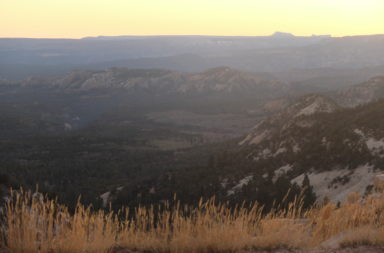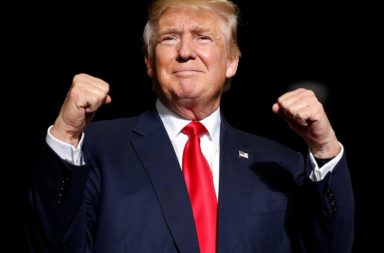The use of internet as a political campaign tool in elections has been on the agenda of the campaign coordinators ever since its use 20 years ago by the first Bill Clinton to bid for presidency in 1996.
Back then, websites and e-mails were the main ways through which the candidate could get in touch with the electorate, but far less impactful than nowadays.
According to a pool done this year by the Pew Research Center in association with the John S. and James L. Knight Foundation, 62% of U.S. adults get news on social media. That is a 13% increase from the previous election cycle in 2012, when 49% reported gathering information through social media.
This brings to the table the question: how is social media and the internet affecting democracy and, more specific, how could they be game changers for a candidate to win the elections? Is there a golden rule to follow in order to use social media in a best way, so that the results favor one candidate?
- Algorithms and the political bubble.
Recently, the German Chancellor, Ms. Angela Merkel, called on the major internet platforms to disclose their secrets regarding the algorithms they use. Algorithms are the mechanisms that „choose“ which content you will be exposed to. They learn why some topics appeal to you more than others whenever you react to something. If you enjoy watching dog videos and tend to like and comment whenever a cute puppy appears on your dashboard, they will read you as a dog lover and show you more content related to that. They act in the same way when it comes to politics. Whenever you like or retweet Trumps posts, the algorithms close the doors to content that may not be appealing to a Trump supporter – like gun control policies, affirmative action or gender issues. Speaking to a media conference in Munich, Mr. Merkel told that “this is a development that we need to pay careful attention to”, arguing that a healthy democracy depends on people being confronted by opposing ideas. Back in the days of the direct democracy in Greece, people used to debate in an open square the best ways to tackle questions that the society needs to deal with. In the social network age, the algorithms are slowly putting us inside bubbles according to what we like or dislike, preventing us from even being exposed to the arguments of the other side.
- The bubble and democracy
While in Germany privacy is a high priority on the agenda of the government and the population (especially after the spionage scandals back in 2012), the same is not true for the US. Ever since 1996, when campaigns´ digital strategy relied mainly on sending e-mails to people in order to engage them in the campaign or for fundraising purposes, a lot has changed in the digital strategies of both Republicans and Democrats. The campaign of Obama in 2008 was a turning point for gathering an impressive support of young people and increasing both fundraising and turnout rates. Obama campaign managed to gather a big share of small size donations from many people, which allowed him to discard the use of federal funds for his campaign and the restrictions that come with it. In 2012, big data was use to define different profiles of voters in order to micro-target people and define which content they were exposed to, increasing the effect of the message broadcasted by the campaign. While this is mainly due to the existance of huge ammounts of public data availabe and the lack of a comprehensive privacy law in the US to prevent this data from being use for electoral purposes – differently from the German case – the fact is that social media and the internet are impacting democracy in the US in many ways.
- What about the 2016 race?
The ups and downs of this elections cycle, while explained by many factors, also have the influence of how the political debate is evolving in digital democracies. When would we expect a far left candidate such as Bernie Sanders to get a real shot as the Democrat nominee? In which reality would we expect a candidate like Donald Trump to be one step away from the presidency of the United States? Experts in digital democracy explain that while the algorithm close our eyes to content that do not appeal to us, they influence us to take a more radical political behavior. Being exposed to content from people that think like me tend to create a confort zone, where radical positions can be easier adopted. A recent study have proved that in time of conflict, people are more likely to unfollow political adversaries or people who think differently than they do on social media. Conducted by Dr. Shira Dvir-Gvirsman from Tel Aviv University and Dr. Nicholas A. John from Hebrew University of Jerusalem, the study shows this behavior in regard to the Israeli-Gaza conflict. However, almost everyone can relate to this feeling when facing a very different opinion regarding political issues. Just ask yourself: how many people did you block or deleted for political reasons in the last weeks? This increased political polarization helps explaining why Trump actually has chances to become America´s first orange president. While his racist, misoginist and xenophobic remarks could have been the end of his chances during the nomination period, it actually worked well in mobilizing votes in his favor. In a more polarized environment – such as the ones in our political bubbles in social networks – some remarks that would sound horrible if done in television during the 90‘s can actually look normal or tolerable.
- Is targeting specific groups a general strategy?
Without the same appeal that Obama had in 2008 to gather the youth support in elections, Hillary Clinton is struggling to engage this age group to cast their vote for her, even with Bernie Sanders´ support. While Obama gathered the support of young people in a social movement-like strategy, engaging young people in the campaign towards the idea of change and novelty in politics, Ms. Clinton does not seem even close to reach this age group. Internet and social media play an even more important role within young people, since their presence in social media is massive in comparison with older voters. While Trump has showed little interest in micro targeting in social networks, Hillary has been focusing on groups that are more likely to support her. Her campaign even created a special Twitter account just for Latino voters, showing her willingness in increasing turnout in her favor among this electorate.
- What is the future of digital campaigns?
US campaigns benefit from micro-targeting strategies using personalized information from voters that probably is just less comprehensive than the data that Facebook and Google hold about their users´ preferences. While managing to reach the electorate in a more personalized way – reaching people based on their political interests, for fundraising or to mobilize people in their campaigns -, this environment brings questions such as the lack of transparency of the algorithms and the potential polarization that they are creating inside the bubbles where users live online. The right digital strategy is blurred when it comes to campaigning – what works and what is to be avoided is still a matter of discussion, especially after Trump´s unlikely success in this election´s cycle -, but voters should be more aware of it to assess whether democracy if benefitting or getting worse in the age of social networks.






